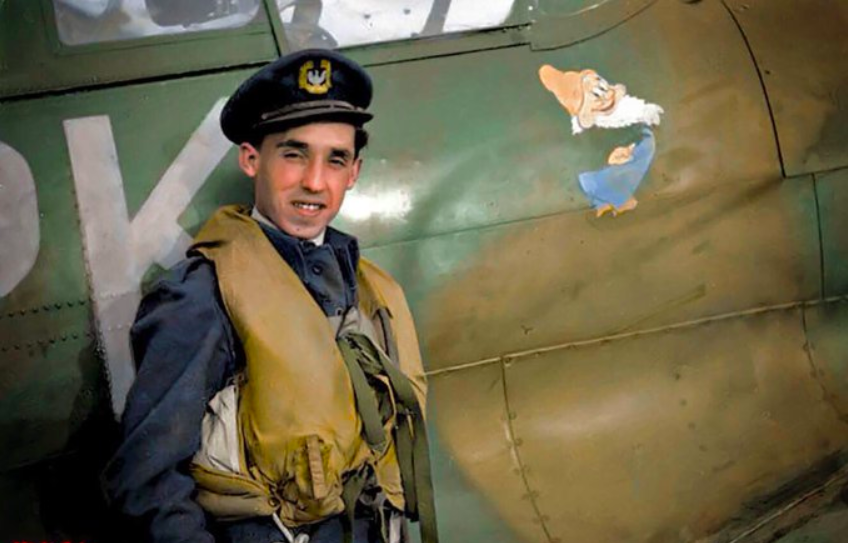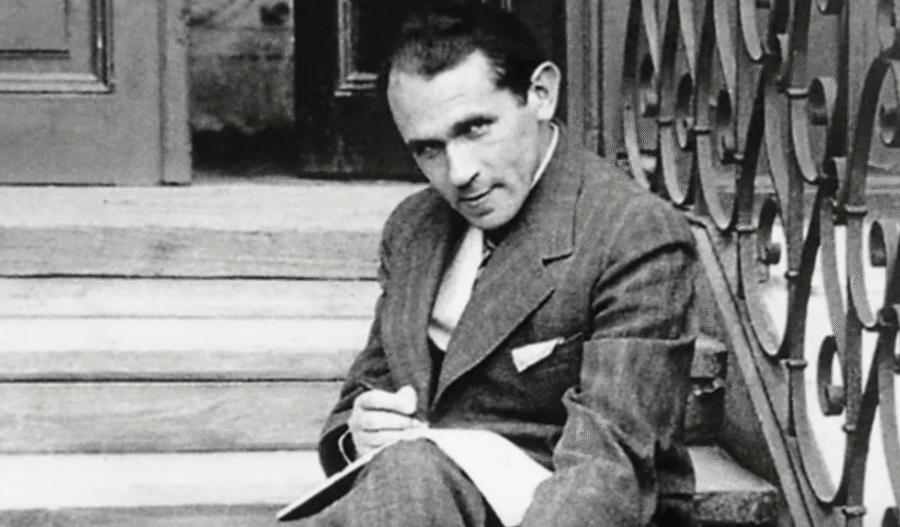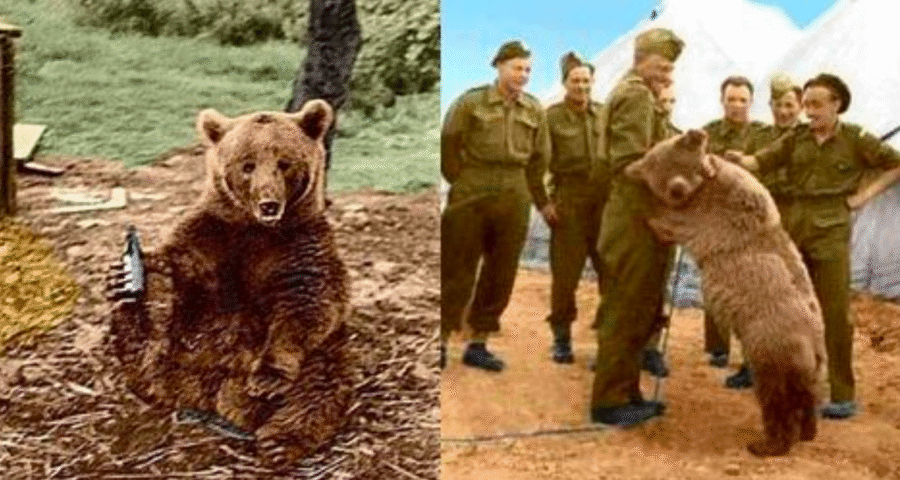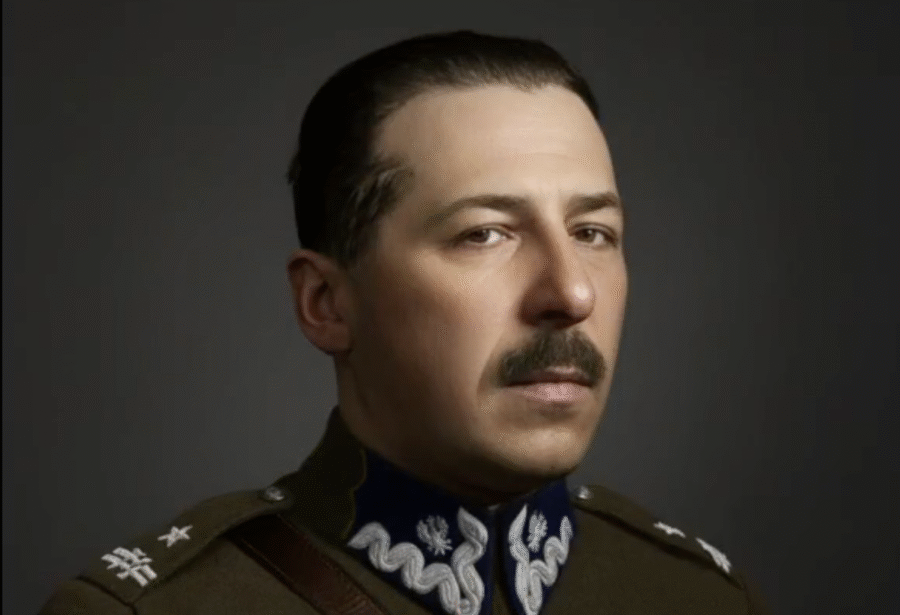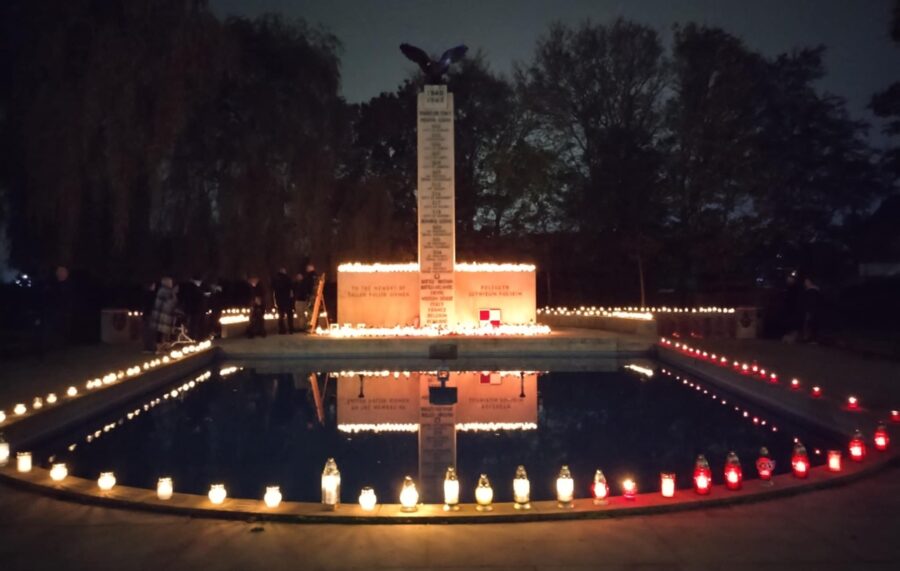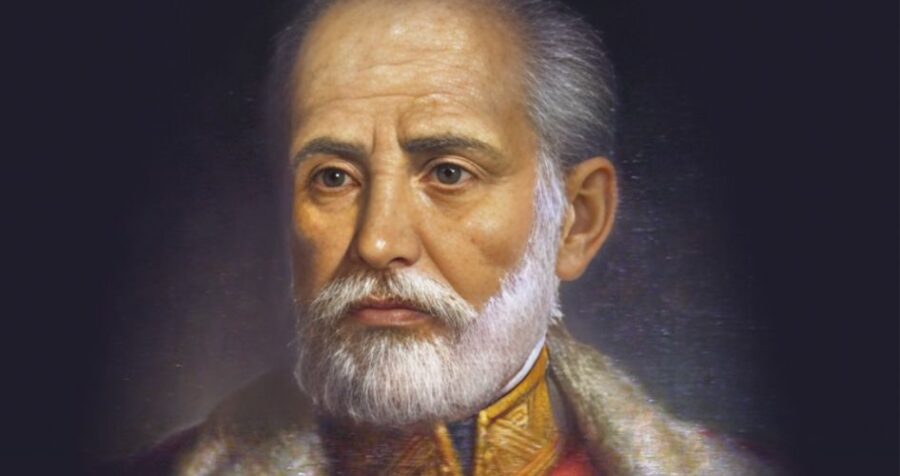Colonel Franciszek Kornicki is an exceptional figure and extremely well-known in the United Kingdom — not only because he fought in 307, 303 and 315 squadrons, served as the youngest squadron commander in the Polish Air Forces in the UK during WWII in 308 and 317 squadrons and the last and longest-living Polish squadron commander.
His popularity stems above all from the fact that in 2017 he won a poll organised by the Royal Air Force Museum and The Telegraph to choose the hero of the RAF centenary exhibition. The vote was held to mark the 100th anniversary of the Royal Air Force, founded in 1918. It took place online and attracted hundreds of thousands of participants.
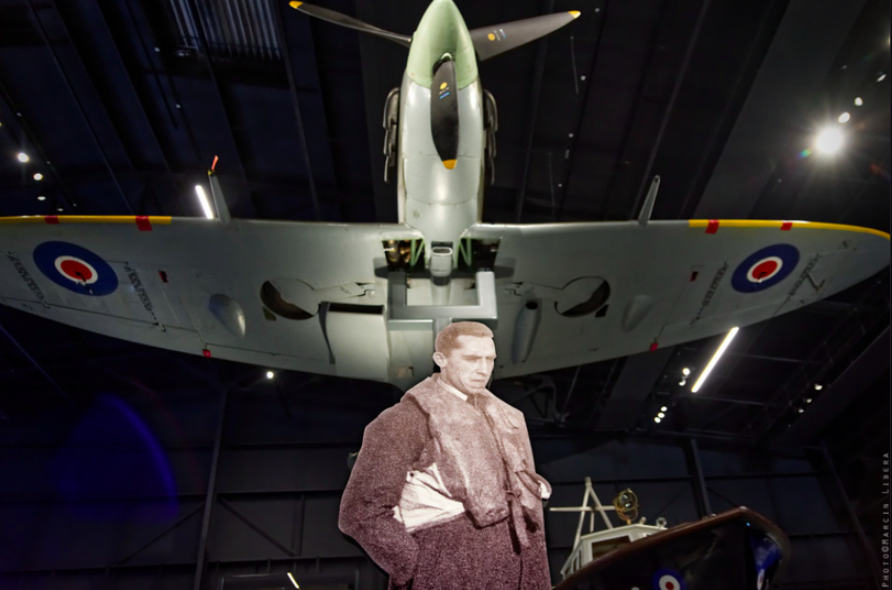
British Poles organised a social media campaign encouraging our readers and internet users to take part in the poll. The results were astonishing. Poles quite literally launched a massive surge of votes — to such an extent that the website repeatedly crashed. The vote ended on 23 September, with more than 350,000 votes cast, and of course our candidate received the overwhelming majority, almost 325.000. The runner-up, the British famous pilot Douglas Bader, received 60 times fewer votes — just 6,300.
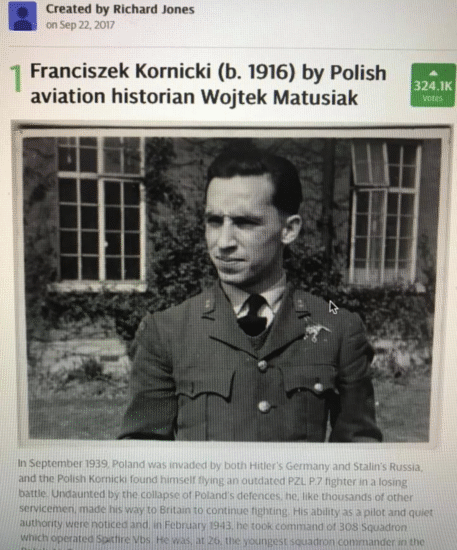
Kornicki arrived in Britain in 1940. He began his stay with intensive English-language study. His first contribution to the Battle of Britain came on 18 September 1940 in No. 307 Night Fighter Squadron. He later joined No. 303 and No. 315 Squadrons. On 12 February 1943 he became commander of No. 308 Squadron — the youngest pilot to hold such a position in the Polish Air Force in Britain operating within the RAF; he was only 26.
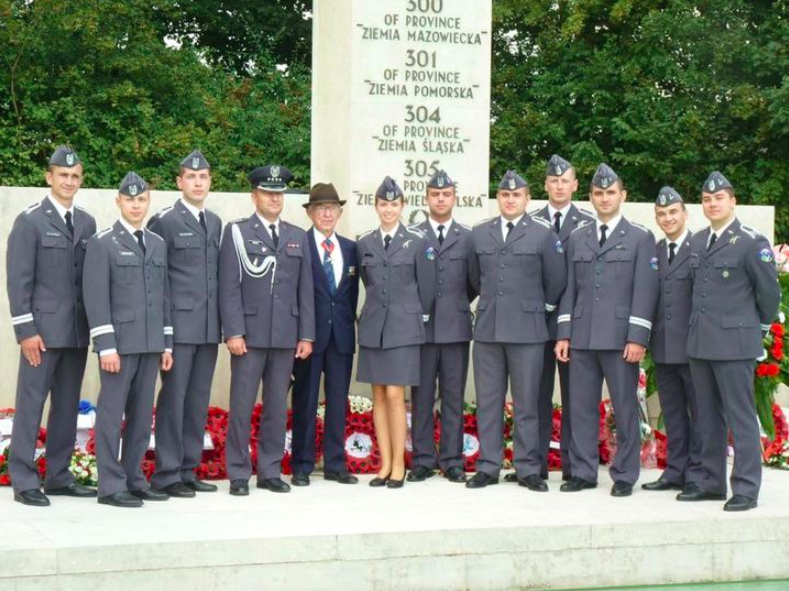
He also served with RAF Fighter Command’s No. 9 Group and carried out tasks for British air forces in the Netherlands and Belgium. In January 1944, after more than three years of service as a fighter pilot, Kornicki was transferred to ground duties in the liaison division.
After the Second World War, he became a major in the Royal Air Force. He was awarded, among other decorations, the Silver Cross of the Virtuti Militari Order and the Cross of Valour. Returning to Poland was out of the question. Going back to communist Poland meant a real risk of imprisonment or execution, so he decided to remain in Britain. In 1948 he married Patience Ceridwen Williams, with whom he had two sons — Peter and Richard.
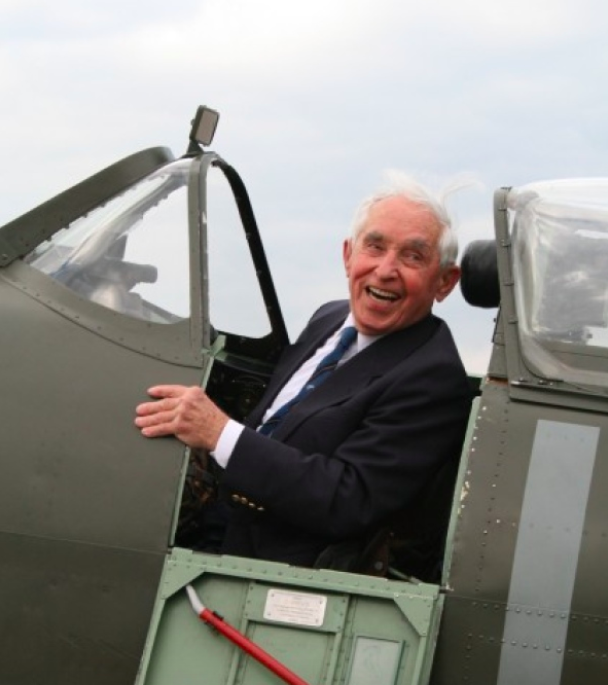
During the 70th anniversary commemorations of the Battle of Britain, Kornicki once again sat in the cockpit of the Spitfire Mk Vb No. BM597, which still flies in the colours of No. 317 Squadron.
The poll for the best pilot ended on 23 September 2017. Kornicki died two months later, a couple of days before his 101 birthday. He was laid to rest at Northwood Cemetery in London, where 53 other Polish airmen are buried.
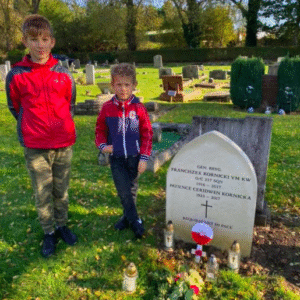
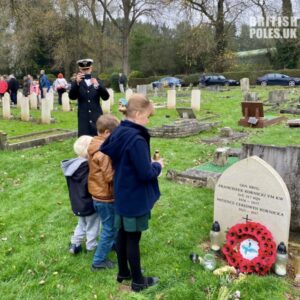
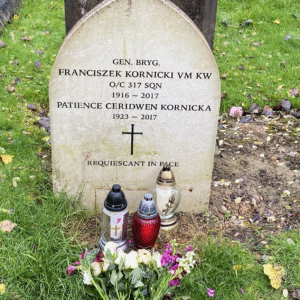
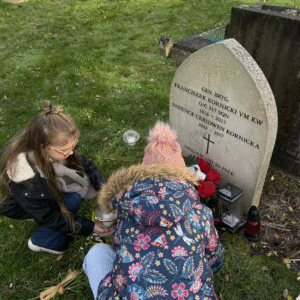
The British Poles organises an annual All Saints’ Day commemoration there, combined with the British Remembrance Sunday.
Maria Byczynski
Photos: Jerzy Chudzicki, Marcin Libera, British Poles, domena publiczna


